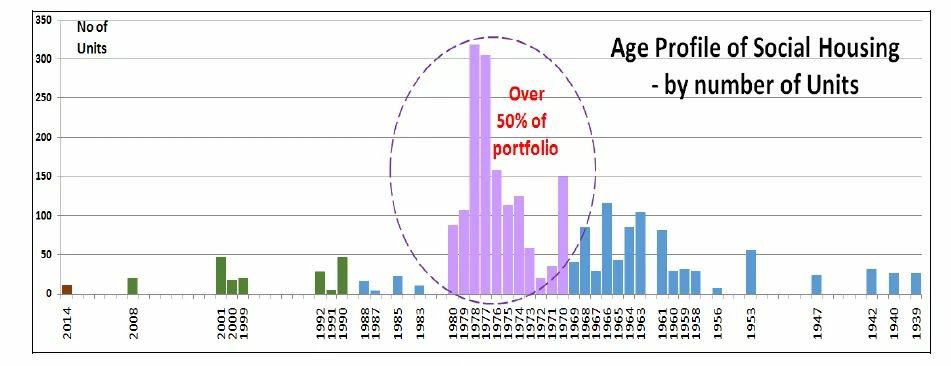OUR CONCERN
It doesn’t matter who you talk to in New Zealand, everyone will agree with you that shelter is the most basic and important issue that faces us in 2021.
The New Zealand government as sent a very clear message that housing was a problem in its 2017 election campaign by committing to build 100,000 homes within 10 years.
In March 2021 the government changed a number of rules around housing tax regulations in an attempt to address the runaway housing market.
The media would have us all believe there is a ‘housing crisis’, we don’t agree. Many New Zealanders don’t have a problem at all, the equity in their homes is ballooning, others have incomes that can sustain rising rents. What we do have is a crisis for those on the bottom rungs of the housing ladder.
The Christchurch Probation Service and Salvation Army tell us, and we agree, that the single biggest driver of reoffending in New Zealand is housing. When people don’t have good shelter many different things happen which end in crime.
Under a previous government, a ‘war on drugs’ was declared. This meant that Housing New Zealand tenants were evicted and not allowed to return, acceptable levels of methamphetamine contamination were set so low that many homes were closed, and massive amounts of money spent on remediation and testing.
We believe that the net result was tipping ‘fringe tenants’ into the private market, where they declared was on landlords. The private market push back was to tip a massive amount of housing stock into the short stay housing market, from which it will likely never return, while putting tenants in jail or on the streets.
A massive amount of damage has been done in all markets and is now going to take considered effort to repair.
WHAT IS THE CIVIC ROLE
It is our view that Christchurch City Council has a very significant role to play in the Christchurch market, which will also influence the national marketplace.
The council’s role must be to influence the bottom rungs of the ladder for the benefit for the wider community and play a role in protecting the private market from the ‘fringe tenant’ community who clearly need much more than a traditional “mum and dad” landlord, they need the combined resource of a council with a $400 million dollar housing resource and $13 billion dollar asset base.
The councils new Social Housing Strategy is to be commended. It is a foundation stone by which council staff can be agile in their approach to making an extensive and positive impact for the benefit of the Christchurch and country wide community.
At present the council is being to ‘risk adverse’, not making enough use of civic resource, not trading in the market and not dedicating enough resource to supporting the community to improve the bottom rungs of the housing market. It has ventured into unwise ‘pet projects’ while not engaging in reasonable market dynamics.
It’s our view that elected members have become so frustrated at the lack of action that they have been endorsing ‘borderline silly’ projects just to attempt to make a point.
WHERE TO FROM HERE?
Become Aggressive!
The council has to review every land asset it has and make more use of those assets to support housing.
Trade in the market.
It is not the councils role to become a major housing owner. It is the councils role to influence the housing market to ensure that good housing exists for the benefit of its rate payers. This means that council needs to: Buy up housing that is at end of life and redevelop such and then resell that asset back into the market, either directly or via partners.
The council must work with more partners in the “Community Housing Provider” (CHP) market. It must seek out more CHP partners, built and rise up those partners.
It must deliver ‘competition’ in the Christchurch CHP market to keep OCHT and others accountable and competitive.
It must also ensure that the social housing market has more provider choice for the tenant community.
The council must borrow more money, more quickly, and deliver more housing and improvement to help address the current social housing waiting list (sitting at roughly 1,900 at time of writing)
The council must empower the community to join the journey. We agree that social housing should be kept “off the rates budget”, but that doesn’t mean “kept from rate payer contribution”. The CCC is a very mature, strong, powerful and stable civic entity. It must use that security to the advantage of people who would like to invest into social housing but need the security of knowing that it is backed by a quality team of resources.
Stability in the rental market
Stability in the long term rental market is delivered by the availability of quality housing.
Some elected members, represent massive property holdings, may will see the council as competing with those interests, are they considering that without competition, they are not being held to account and their customers are now actively and aggressively attacking them via many vectors, costing every rate and taxpayer more.
The council needs to review the style of housing it delivers in its current program. The OCHT CE tells us, and we agree, that the style of housing they have is not appropriate for a range of social housing tenants, specifically prison reintegration, but clearly not limited too.
The council must put in motion a project to invest in a range of housing solutions, one and two bedroom, 5 and 6 bedroom (which is where the highest demands are). Some of this housing simply needs to be urgently purchased in the open market while others need to be build.
The council needs to become much more diverse in the range of borrowing it makes to fund such projects. While it is ideal to borrow at OCR +25 base points (and sell to CHP’s at +40 base points), this is NOT acceptable in the market while also addressing the level of work that needs to be done and accepting the interests of a retail commercial banking sector that under pins most borrowing and property security in New Zealand at present. Our view is that the council needs to be involved in at least $1.3 billion dollars of the market, that is to much to only load on the LGA fund and to much direct market influence in the banking sector.
The council still has to much property that is not being used quickly enough for the benefit of a growing community. Our observation is that the council does not have enough resource on staff to effectively manage the level of resources it has, so those resources are sitting idle while some in our community sleep in cars and motels.
The council must recognise the importance that housing quality and presentation has on mental health. In 2019 it took us months to have rubbish removed from the Poulson Street complex. Some complexes still need cosmetic updates that are well over due.
The council must keep front of mind that while a typical council worker is gone from their home for 9 hours a day and elected members may be gone from their homes for much longer, social housing tenants may not leave their front door for days on end (which is more time inside than a prison inmate spends inside, even on full lock down). Employers pay for keeping workers warm for 8 hours a day while workers only need to think about home heating for 12 hours a day (assuming time away from the home is not just spent working). Complex social housing tenants must heat their spaces 24 hours a day.
While council has improved the heating choices for many it needs to grow the amount of housing stock more quickly, as our population grows and ages, than the current 100 units that OCHT has committed to at present.
Christchurch has a cold climate compared to Auckland or Northland. However we also have a very much richer and wealthy community too, and more access to low cost energy.
CLIMATE EMERGENCY!
In this decade we have to pivot in social housing. As a council, you have the capacity to take a housing lead, influence and make a much more significant difference than you currently are.
You are the city wide leader (if not the national leader) in housing complex development.
Every new complex has to be installed with solar energy that offsets the power costs of every tenant.
Some complexes need to be designed with ‘complex heating’, that like a retirement home, keeps the entire complex at a living temperature no matter the actions of the tenant.
HOW MUCH HOUSING SHOULD CCC PRODUCE
At the time of writing there are more than 1900 on the social housing waiting list. We understand this doesn’t mean that we actually need 1900 new homes delivered this next year. We understand that some of these people need to be housed in flatting situations, making better use of existing stock.
However CCC needs a much more powerful leaver on the housing market in Christchurch to benefit the whole community, at present it doesn’t have that. It does in transport, it does in power, it does in telecommunications, it doesn’t in housing, yet housing is the most important of all of those.
We have called for 8,000 total CCC social homes. Given the city has 174,000 rating units, 65% home ownership nationally, and a growing population, we don’t think this is unreasonable.
We would like to see council raise up to $1 billion dollars in the market to support this vision.
CCC needs to build with more partners and build a more extensive range of products. Not everyone wants to work with OCHT to work with CCC. We believe that those working with OCHT also need employment choice while continuing to work with CCC.
CCC needs to urgently raise $400 million to support its building program in the current/next LTP term.
CCC needs to target a “1000 bed per year” program in this LTP. (That’s 10,000 beds over 10 years or a mix of 1, 2, 5 and 6 bedroom homes, which is where the current demand is.)
OVERALL OBJECTIVE
The over all goals and KPI’s of the council should be:
- Make effective use of every asset our community has
- Support the elected government objectives to provide a stable housing market by protecting the market from ‘fringe tenants’ (by spreading the burden of those folk equally across the whole community).
- Deliver CHP/Social Housing Provider choice in the market
- Keep rents stable by ensuring that rental tenants have a choice
- Deliver a quality level that sets a city wide bench mark as the minimum standard that our community will accept for shelter.
- Work with the commercial money markets to their benefit.
WHO ARE WE
oursocialhousing.nz is a special interest website created by Don Gould and Stephen McPakie to present information to the community about Christchurch social housing. It’s focus started with data from the Christchurch City Council but has grown to included others.
We have also presented a host of articles on market and data analysis with views on social housing in our city.
You should review our web site: oursocialhousing.nz















